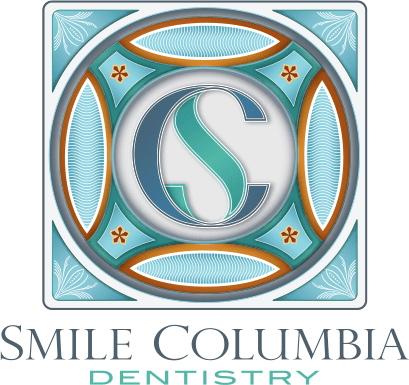Many people develop temporomandibular joint disorder (TMJ) as a result of a bad bite. If your teeth aren’t fitting together properly, it can put your jaw joint and your jaw muscles at odds with one another. Your jaw joint can become dislocated (which you’ll know by the popping and clicking of the joint) while your jaw muscles get chronically tired and sore.
And your teeth get caught in the middle of this struggle. As the jaw joint and the muscles work against each other, the teeth can suffer excessive wear, cracking, chipping, and loss. This only makes the bite worse and accelerates tooth damage and wear, until all your teeth are lost.
Most dentures aren’t designed to help people with this type of problem, but neuromuscular dentures can. They can put your jaw in an ideal position so that your jaw muscles and jaw joint feel comfortable and function together. The effects of this transformation can be amazing.

Your Bite Affects Your Entire Body
When you are struggling with a bad bite, the most common symptoms are localized to the jaw area. We mentioned damage to the teeth, but you probably also noticed difficulty biting and chewing. Even talking can lead to jaw pain.
But the symptoms can be far-reaching, too. You might experience ear pain, ringing in the ears, and dizziness. You might experience neck pain, back pain, and tension headaches because your jaw helps serve as a foundation for your head, and when it’s out of position your muscles have to work harder to maintain it upright.
You might even have noticed that you have more difficulty getting around and may be more prone to falls , either as a result of a bad bite or as a result of having dentures that don’t properly stabilize your head and core.
Most Dentures Don’t Improve the Bite–Some Make It Worse
Most denture dentists don’t pay enough attention to the foundation of the bite when making dentures. Even those that are trained to treat TMJ often don’t bring that expertise into their denture manufacturing process. As a result, if you had TMJ before you needed dentures, you likely still have it.
Some dentures, especially cheap dentures, can be even worse for your bite. Because these dentures come in a limited number of sizes and configurations, they may be too large or too small for your mouth, which worsens the imbalance.
If you are experiencing issues related to TMJ, you need neuromuscular dentures that can put your jaw in a harmonious position so that your muscles and joints work together to give you more strength, better balance, and, best of all, more comfort in biting, chewing, and talking.
To learn how you might benefit from neuromuscular dentures in Columbia, SC, please call (803) 781-9090 for an appointment with a neuromuscular denture dentist at Smile Columbia Dentistry today.

